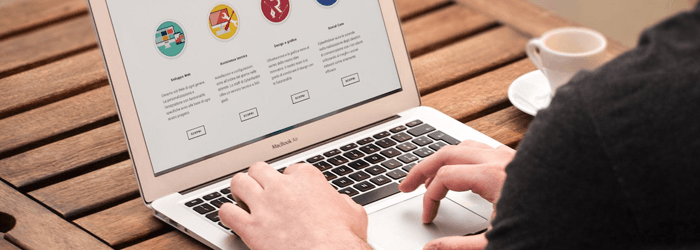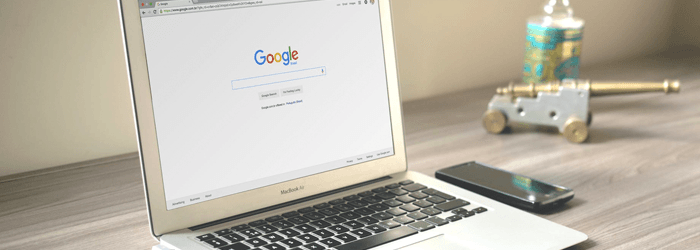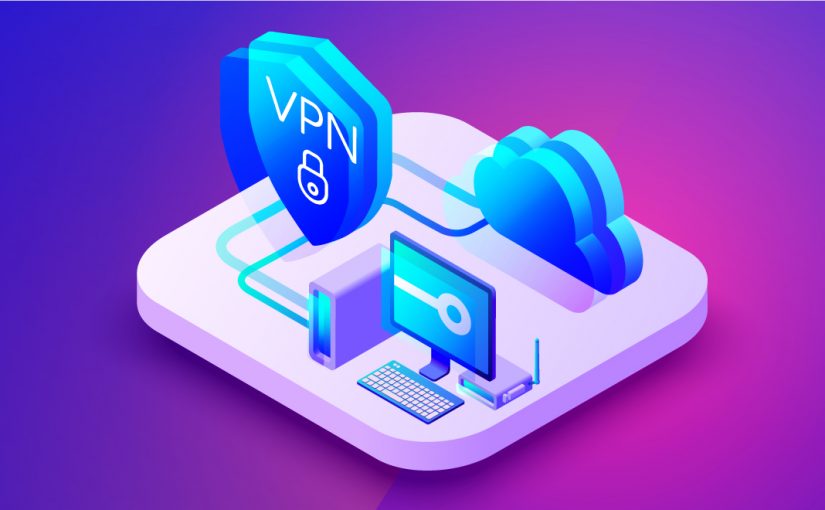Why Do People Use VPN Services?

1. It Protects Your Freedom of Speech and Privacy
While freedom of speech and expression is considered a somewhat universal right, the reality is completely different. People in Middle Eastern countries often have to rely on self-censorship so as to not end up in legal trouble. Sometimes, the consequences can be downright atrocious – a Saudi Arabian blogger, for instance, ended up being flogged in public for his blog!
What’s more, people in countries with oppressive governments aren’t the only ones who are having their free speech rights restricted. Even Internet users in the “free” world have to put up with hate speech laws which dictate what somebody can or cannot say online.
And to make it clear – we understand that such laws are not meant to intentionally reduce freedom of speech, but to help people feel safer online. However, their vagueness often allows governments to abuse them as they see fit, and restrict freedom of expression on the Internet.
Besides freedom of speech, you might just want to enjoy more privacy than what a browser’s Incognito/Privacy Mode can offer – to make sure that no ISPs, data mining companies, or surveillance agencies can monitor your activities.
A VPN helps with that by encrypting your personal data and online traffic, making it virtually indecipherable for anyone who tries to snoop on your online habits. So, nobody can link what you say or do on the Internet with your real geo-location and online identity.
2. It Helps You Access Restricted Content
The Internet is full of amazing music and video platforms like Netflix, BBC iPlayer, Hulu, and Pandora. It’s just a shame not all online users can enjoy everything those websites offer. Why? Because many platforms enforce geo-restrictions that prevent Internet users from watching/listening to various content if they’re not from the “right” geographical location.
For example, if you’re not from the US, you won’t be able to enjoy the Netflix US library or Pandora Radio. When you connect to the platforms, the websites will know what your real IP address is (and – consequently – what your geo-location is), and block access to their content or redirect you to other pages.
“But why should I use a VPN if I already have access to the content I want?”
Well, geo-blocks can also affect you if you’re a subscriber who normally has access to such content, but are out of the country for a while. For instance, you might be subscribed to Hulu, but you won’t be able to watch your favorite shows or movies if you’re outside the US (whether you’re working abroad, an expat, in the military, or just on vacation).

Luckily, a VPN can fix that problem by hiding your IP address, and replacing it with the address of a VPN server in a country where the geo-blocked content is available. So, to access Hulu, you’d just need to connect to a US-based VPN server.
And geo-restrictions aren’t the only thing standing between you and online content. Network restrictions at work or school can prevent you from enjoying your favorite music and shows in your free time – all because a network administrator has to follow some strict, annoying rules.
Well, no problem – since a VPN hides your IP address, it lets you easily bypass firewalls, letting you listen to your favorite tunes while you work, or catch up on the latest Netflix series on your lunch break.
3. A VPN Secures Your Online Connections
With cybercriminal attacks becoming a serious threat nowadays, you need to take extra security measures whenever you use the Internet – especially when you connect to unsecured WiFi networks. As convenient as they might be when you need web access on the go, unsecured networks are extremely dangerous since hackers can easily eavesdrop on your connections and steal sensitive data such as your:
- Bank account details
- Login credentials
- Credit card information
And don’t fall into the trap of believing that secured networks and your home network are 100% safe. With the KRACK Attack vulnerability that was found in 2017, even WPA2-enabled devices can be hacked by cybercriminals. Until WPA3 comes along, you shouldn’t take any chances and just use a VPN when accessing the web – it encrypts all your data and online traffic, keeping private information safe from hackers.
4. A VPN Helps You Avoid Mass Online Surveillance
As the Internet became more and more advanced, governments didn’t stay idle. Numerous government surveillance agencies started creating surveillance programs that take advantage of the information available on the web to monitor Internet users worldwide.
The NSA’s PRISM program is one of the most well-known mass surveillance programs as of now. It’s actually capable to gather information on ISP (and other corporations) consumers both inside and outside the US.
And like we just said, PRISM isn’t the only mass surveillance program you need to worry about when you’re on the Internet. There are tons of other programs worldwide that threaten your privacy.
Pretty creepy, right?
No need to worry – with a VPN you can prevent Big Brother from keeping tabs on what you do on the Internet. The service fully encrypts your connections, making sure no government agency can collect sensitive data whenever they monitor them.
5. It Keeps Advertisers From Getting Too “Friendly” With You
“Why do people use VPN services if they already have things like Adblock?”
Well, the thing about ad blockers is that they might prevent you from being exposed to ads, but they won’t really do much about protecting your privacy from advertisers. They can still gather data on your online habits if you use an ad blocker.
In fact, in countries like the US, third-party advertisers can even buy info about your Internet preferences from your ISP. Safe to say that things like this likely happen in other countries too, only more on the downlow – not to mention advertisers can get info about your online habits from other website as well.

Luckily, a VPN can change things by protecting your online privacy and encrypting your Internet traffic, ensuring your ISP and advertisers can’t monitor everything you do online, and capitalize on that information.
6. A VPN Helps You Download Torrents Safely
While file-sharing can be extremely useful, it can also be very dangerous – so much so that you might risk receiving DMCA notices, or – even worse – having to pay off huge fines, ending up in court, or even being imprisoned depending on the copyright regulations and laws in your country.
Fortunately, with a VPN, you can just connect to a server in a country where torrenting isn’t a problem (like Romania or Switzerland), and download torrents risk-free.
“But why use a VPN if I live in a country where torrenting isn’t a taboo subject?”
Well, VPNs don’t just help you stay out of legal trouble when engaging in file-sharing. Since they hide your IP address, they also help you protect your privacy from the Swarm (the total number of seeders/leechers uploading/downloading a torrent). You see, users in the Swarm can normally see your IP address, and that can tell them a lot of things about you, such as:
- What country you are from
- What city you are from
- Even who your ISP is
DISCLAIMER: We here at CactusVPN don’t encourage or condone illegal piracy and intentional copyright infringement. However, we are aware that many people can only get access to work or school files and entertainment by using torrents.
7. It Makes It Possible to Overcome Government Censorship
Besides monitoring what people do on the Internet, many governments also like to control what people can see or do on the web too. In many countries around the world, you’re not able to access certain websites or use various online services (like YouTube, Facebook, or Gmail, for instance).
Here’s a comprehensive overview of Internet rights across the globe, where you can clearly see which countries censor parts of the Internet.
It’s easy to see how that can be a serious problem not only if you live in a country where the government censors the Internet, but also if you visit such a place on vacation or for work.
The good news is that a VPN hides your IP address and your online activities, letting you effectively bypass any government-enforced firewalls you come across.
8. It Helps You Try Out SEO Strategies
Not many people realize this, but it’s actually possible to use a VPN for your SEO strategies. Since the service hides your real location and lets you make it seem as if you’re from a different country, you can see local SEO results in other international markets.
Basically, if you’re from Italy, for example, and want to market to people in the US, you’ll be able to see what keywords US consumers are looking for by using a US VPN server.

There are plenty of possibilities, of course, but that’s not the only way a VPN can help you with your SEO plans. Here are other ways you can benefit by using a VPN for SEO:
- You can work remotely worry-free.
- You can protect your privacy from your competitors (like making sure they don’t notice when you’re visiting their website).
- You can bypass Google’s annoying search query reCAPTCHAs.
In case you’d like to read more about this, feel free to check out our comprehensive article on this topic.
9. A VPN Improves Your Gaming Experience
Yes, you heard it right – you can actually use a VPN for video game-related stuff. Here is a short list of the things you can do with a VPN:
- Play in any region you want (even if it’s geo-locked)
- Play newer games earlier
- Bypass annoying IP bans
- Play games that were banned
- Potentially reduce lag and ping times
- Protect yourself from DDoS attacks from sore losers
And all of that is possible because the VPN hides your online identity and encrypts your Internet traffic and personal data. In case you’d like to learn more about using a VPN for gaming, feel free to check out our in-depth article.
10. A VPN Can Save You Money on Airplane Tickets
If you didn’t already know about this, airlines actually practice online price discrimination – basically displaying different prices to Internet users from different country. What that means is that if you’re from the US, for instance, you might be shown pricier tickets than someone from India. That’s not all, though – you might also be shown more expensive tickets if the airline website identifies you as a recurring visitor (based on your IP address).
Well, you can bypass that problem by using a VPN to mask your IP address – either to make it seem you’re connecting from a less developed country, or to hide the fact that you’re a recurring visitor. Deleting cookies on your device alongside that also helps.
Still, we do have to mention we’re not making any guarantees. However, according to our own experiences and our research, it is possible to save anywhere between a couple of dollars to hundreds of dollars on a flight.
In fact, when we wrote this article (where we discuss this topic more in-depth), we did a quick test and found that we could save up to $450 on an United Airlines flight with a Romanian IP address.
11. It Helps You Combat Unfair Bandwidth Throttling
Not familiar with the concept of bandwidth throttling? Basically, it’s when your ISP monitors your data usage throughout the month, and they decide you are using “too much” data for a certain online activity (downloading files, streaming, online gaming, etc.). To reduce your “extensive” data usage, they throttle your online speeds.
ISPs generally do this to reduce network congestion. However, it’s also very likely they use bandwidth throttling as a way to “convince” you to purchase a more expensive, bigger data plan or pricier subscription.
How does a VPN help with this? Well, it encrypts all your online traffic, making sure your ISP can’t see what you are doing online. Consequently, they can’t throttle your bandwidth.
12. A VPN Can Help with Work
Naturally, you can’t really use a VPN for every single work-related aspect. However, it can be used to improve the quality of life at work. For instance, if you have to do a lot of market research (especially in the US), a VPN will help you unblock geo-restricted websites. This can be especially useful if you’re working with a client whose website is geo-blocked outside the country.
We already covered how a VPN helps with SEO strategies, but here’s another way a VPN helps you at work – by securing your VoIP conferences. What’s more, besides just securing your calls, a VPN might also help you get better call rates with services like Skype. If you’d like to read more about VPNs and VoIP calls, check out this article.

A VPN can also secure work-related data when it’s accessed by employees outside the office on unsecured WiFi networks. Still, it is worth mentioning that this method is more appropriate for small and medium-sized business, as large companies usually have their own corporate VPNs in place for this.
CactusVPN – The Best Way to Enjoy All Uses of VPN Services
Regardless of which one of the reasons we outlined in this article motivates you to use a VPN service, we’ve got your back. CactusVPN offers high-end AES encryption that fully secures your data and traffic, unlimited bandwidth, and high-speed servers.
Out of our 30+ servers, 10 of them offer P2P support, and our service features a Killswitch as well to ensure you’re always protected – even when your connection goes down. Also, we offer user-friendly apps that work across multiple devices and are easy to install, and a Smart DNS that unblocks over 300 geo-restricted websites.
Special Deal! Get CactusVPN for $3.5/mo!
And once you do become a CactusVPN customer, we’ll still have your back with a 30-day money-back guarantee.
Why Do People Use VPN Services? To Experience the Internet the Way It Was Meant to Be Enjoyed
So, why do we use VPN services? Well, to put it simply – so that we can enjoy the Internet surveillance, censorship, hacker, and restriction-free. The service hides a user’s IP address and encrypts their online connections, effectively making it hard for anyone to detect their real online identity.
All in all, most people use VPNs to:
- Bypass geo-blocks, annoying firewalls, and government censorship
- Protect their data against mass surveillance, advertisers, and hackers
- Secure their freedom of speech online
- Get cheaper flights
- Enjoy a better experience at work
- Improve their SEO strategies
- Avoid bandwidth throttling
Of course, we’d be more than happy to hear why you think people use VPNs, and what you personally like using a VPN service for as well.
 What Is a VPN and How Does is Work?
What Is a VPN and How Does is Work?
 What VPN Features Are Normally a Must-Have for a VPN Service?
What VPN Features Are Normally a Must-Have for a VPN Service? 